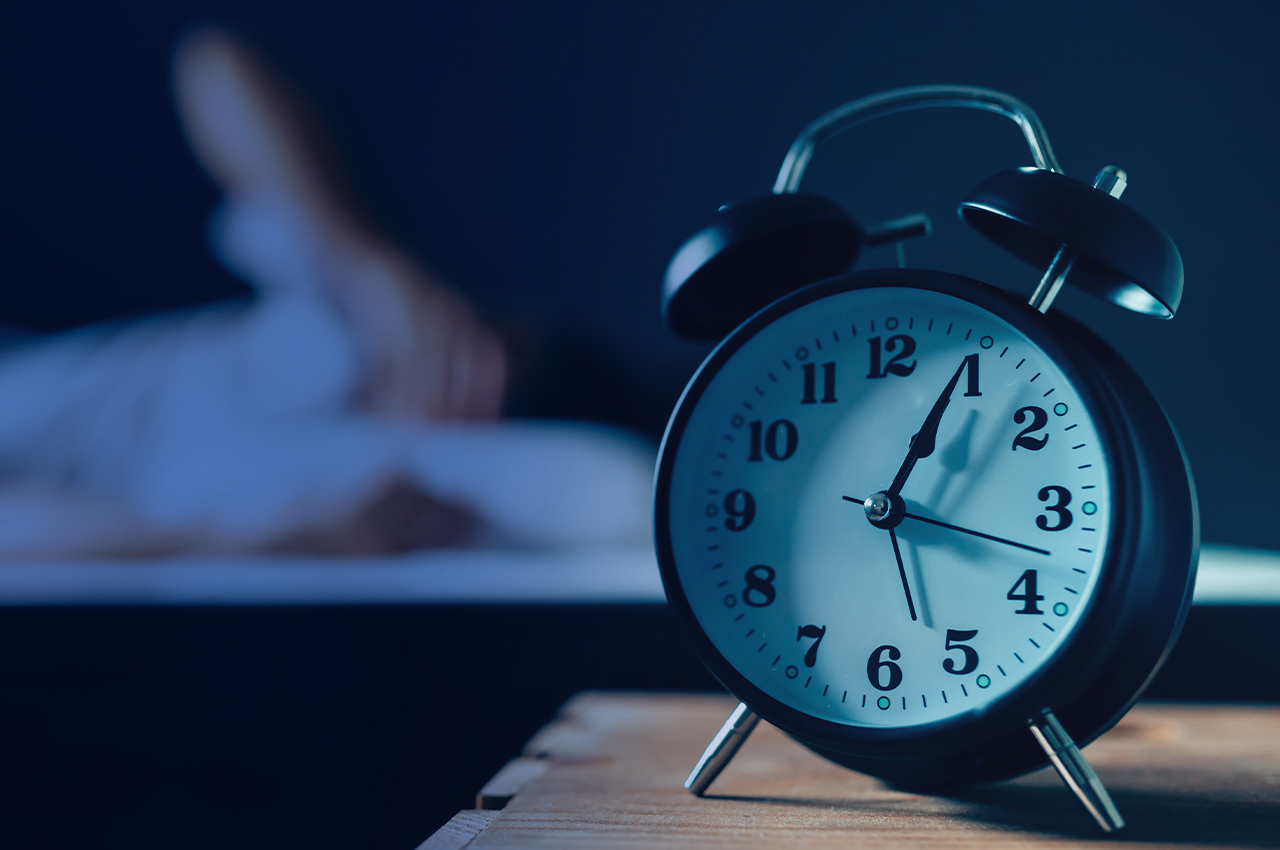Do you wake up in the middle of the night and lie awake for hours, anxiously watching the clock?
In an ideal world, after a long day, you’d easily fall asleep. Unfortunately, despite feeling exhausted, some of us struggle to sleep.
Insomnia is a common sleep disorder which impacts the ability to both fall asleep and stay asleep.
Interrupted, or non-restorative sleep eventually takes a toll on your energy, mood, and ability to function during the day. Chronic insomnia can eventually lead to serious health problems.
Two types of insomnia
Primary insomnia: Primary insomnia is a disorder itself, in other words, not a symptom or a side effect of another medical condition. Your doctor may diagnose your sleeplessness as primary insomnia after ruling out other medical conditions as a cause.
Secondary insomnia: Secondary insomnia occurs as a result of another health condition or as a side-effect of prescribed medication. It can be short-term or long-term. Most people with chronic insomnia have secondary insomnia.
Causes
There are several causes of insomnia, caused by either physical or psychological factors, such as:
Disruptions in circadian rhythm: Jet lag, job shift changes, high altitudes, noise, extreme heat or cold.
Psychological issues: Bipolar disorder, depression, anxiety disorders, or psychotic disorders.
Medical conditions: Chronic pain, chronic fatigue syndrome, angina, acid-reflux disease , chronic obstructive pulmonary disease, asthma, sleep apnoea, Parkinson’s and Alzheimer’s diseases, hyperthyroidism, arthritis, brain lesions, tumours and stroke.
Hormones: Oestrogen, hormone shifts during menstrual cycle.
Other factors: Pregnancy, overactive mind, sleeping next to someone who snores, parasites or genetic conditions.
How do you know if you have insomnia?
Here’s how to tell:
1. You can’t fall asleep at night. Lying awake for 30 minutes or longer once you get into bed should be a red flag.
2. You wake up in the middle of the night and can’t fall back to sleep within 30 minutes.
3. You wake up earlier in the morning than you anticipated.
To find out if you have insomnia, your doctor will do a physical exam and ask you about your symptoms, daily habits, and stress levels.
Your doctor may also:
- ask you about your sleep habits.
- do tests to rule out other medical problems that might cause insomnia
- talk to you about the medicines you take, and
- ask you to do a sleep study, called a polysomnogram (PSG). During a sleep study, you stay overnight at a sleep centre or medical facility. You’ll be hooked up to monitors that record brain activity, eye movements, heart rate, and blood pressure while you sleep. Machines also record snoring, chest movements, the amount of oxygen in your blood, and how much air moves through your nose while you breathe.
The treatment for insomnia depends on its underlying cause. Treatment includes improving sleep habits, behaviour therapy and identifying and treating underlying causes. Although sleeping pills may be used, these are always closely monitored for side effects.
If your insomnia is caused by a short-term change in your sleep/wake schedule, like jet lag, your sleep schedule will probably return to normal on its own.
Chronic or long-term insomnia can be treated with lifestyle changes, cognitive behavioural therapy (CBT), and/or prescription medication.
When insomnia is caused by a medical condition, your doctor may refer you to a specialist who can treat the underlying condition. Once the underlying condition has been identified and managed, it’s likely that your insomnia will start to improve.

